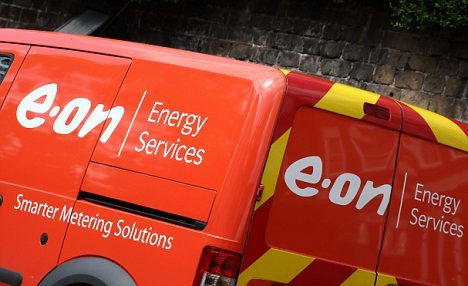
E.On has admitted to losing 200,000 British customers this year, adding that energy price hikes did not help shield its British business from the effects of “fierce” competition, tough regulation and the Brexit-hit pound.
The German energy firm’s finance chief Marc Spieker said he could not go into details about the total number of UK customers compared with the start of the year, but assured that its base has since stabilised.
“We’ve got a loss of about 200,000 customers but I have to stress that that is a development that concerns especially the first quarter. And in the course of the second quarter, we were able to stabilise those figures,” Mr Spieker said, according to an English translation.
But E.On – which hiked its standard variable dual fuel prices by an average of 8.8% from April 26 – said that the stemming of customer losses did not make up for challenging market conditions in Britain.
“In the UK, the price increase instituted in April and the stabilisation of customer numbers in the start of the year were not enough to offset the negative impact of persistently fierce competition, regulatory challenges and adverse exchange rate effects,” the finance chief said.
In the first nine months of the financial year, Mr Spieker said that UK earnings dropped by around 80 million euros (£70.9 million).
The E.On Group as a whole reported a 5% jump in sales in the third quarter to 8.35 billion euros (£7.4 billion) but a 1% drop for the nine months to September 30 to 27.9 billion euros (£24.7 billion).
Adjusted underlying earnings rose 13% in the third quarter to 350 million euros (£310 million), and fell 8% to 2.1 billion euros (£1.9 billion) for the first nine months of the financial year.
E.On said that its full-year forecast was still significantly influenced by the tough business environment, including the effects of the “weaker British pound and policymaking risks in the United Kingdom”.
Britain’s biggest energy producers are currently bracing for a raft of regulatory changes after the Government announced last month that a price cap will be imposed on poor-value energy tariffs.
“The intervention of the Competition and Markets Authority and rising costs for customer acquisition as part of our new marketing strategy will have a significant negative impact on earnings in the United Kingdom,” E.On warned.
The group’s adjusted underlying earnings are set to come in between 2.8 billion euros (£2.5 billion) and 3.1 billion euros (£2.7 billion) for the full financial year, the company said.
Mr Spieker assured that E.On was able to survive on its own and “really well positioned on the UK market” in the “long run”.
His comments come after two rivals, SSE and German-owned Npower, this week reached an agreement to merge their operations, creating a new listed energy supplier in the UK.
Recommended for you
